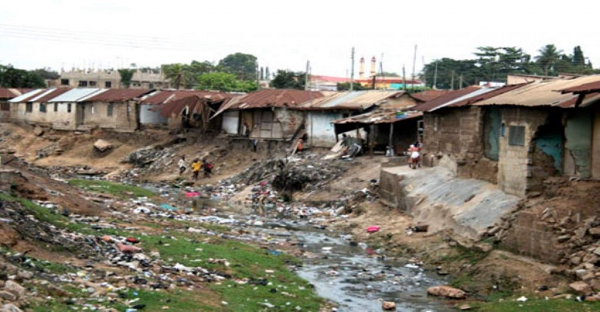
Let’s deal with the slums
Slum development is a challenge all over the world, developed and developing countries alike. So, under normal circumstances, the announcement of existing slums in the cities of Ghana would not raise any eyebrows.
But the report of the research conducted by a non-governmental organisation that showed that 265 slums had been identified in Accra alone raises concern for serious-minded citizens.
The report, conducted by People’s Dialogue on Human Settlements (PD) Ghana, was quoted by a senior lecturer at the Kwame Nkrumah University of Science and Technology, Dr Prince Anokye, when he presented findings on literature review and methodology in a research on Madina Zongo, Agbogbloshie and Chorkor.
All these areas may meet the description of a slum as usually an area of poor quality housing typically found in the inner city of a country which is densely populated, in bad state of repairs and has poor electricity supply and irregular or absence of water supply.
The Daily Graphic wonders how Accra alone could have such a huge number of slums because they could not have developed overnight. They started gradually, with a few people taking advantage of laxity in enforcement of planning regulations.
We are worried also because if the city authorities had not slept over their responsibilities, these slums would not have developed to their current state. It is their failure to act quickly to stop the development that encourages relatives and friends to join and the number increases.
There are well-grounded reasons most citizens are uncomfortable with the development of slums. Among other things, slums distort the development plans of the country. They also create sanitation problems and can easily spread diseases. In case of disasters, such as fire outbreaks, the poor planning, coupled with lack of access roads, can result in casualties that would be difficult to deal with.
As a country, we should bear in mind that slum development will be difficult to deal with if the factors that contribute to their springing up are not dealt with. That is why we have said a number of times that programmes that the government and other authorities roll out to deal with poverty should be supported by all and not be politicised.
As we know, one of the causes of slum development is poverty and so we should all support the government’s programmes that are aimed at alleviating poverty and ignorance.
Programmes such as one-district, one-factory, Planting for Food and Jobs, one-village, one-dam and one million per constituency readily come to mind.
We also urge the government to be tolerant of opposing views as far as suggestions intended to make these better, so that it can adopt and adapt such proposals to enrich its laudable programmes.
Again, we admonish the city authorities to be up and doing and not sit down till the problem has arisen before they begin to act. If the problem is due to inadequate staff, we advise that the required personnel be engaged and resources provided to ensure that they work effectively.
Finally, we urge the government, our universities and research institutions to come up with new technology that will make housing affordable, as suggested by Dr Anokye, since even these days there are workers who prefer to live in these slums because of the high cost of housing.